- Blog
#Azure
How to plan your Azure budget for 2025-2026 with FinOps
- 11/12/2024
Reading time 5 minutes
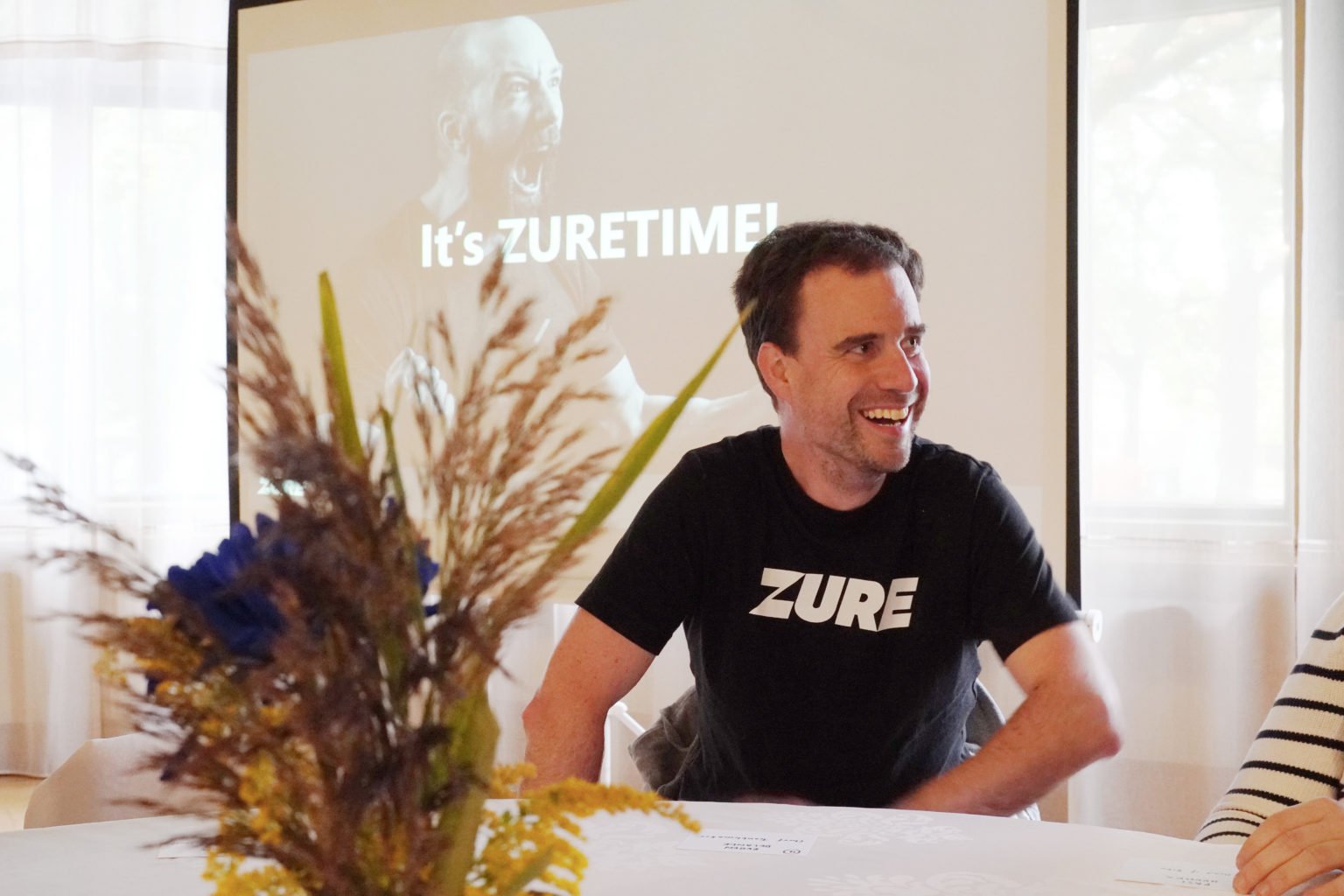
My Week showcases one of our expert’s work week – the highs and the challenges they are facing, and what the role actually consists of.
Today we take a closer look at the work week of Ruben Delange, who started at our Belgian office in spring 2022. Ruben is an Azure Architect who loves designing but also developing fit-for-purpose solutions.
We interviewed Ruben on a beautiful Friday in December 2022 to get a better understanding of what he is doing on a daily basis.

Small disclaimer: this article is not generated by ChatGPT or any other AI tool, but it’s rather the result of an old-school dialogue between 2 people.
I’m currently working about 80% of my time on a greenfield project (I actually prefer to call it a product) for a customer together with Glenn. The product itself is currently in an MVP phase. Glenn and I form a mini Zure team within a cross-functional team of 5 people in total.
We are building a custom data-sharing platform using Azure PaaS components. From a technology perspective, I can take on many different tasks such as building full vertical .NET API slices, front-end React, and Azure DevOps automation stuff with YAML pipelines and bicep. Besides the pure development tasks, I also like to participate in (non-)functional refinements, architectural analyses (incl. Integration scenarios), and end-to-end testing.
I spend the other 20% of my time on non-billable topics like bidirectional knowledge transfer, recruitment, some marketing, and a bit of sales.
So, in terms of job content, no two days are the same and I absolutely love it!
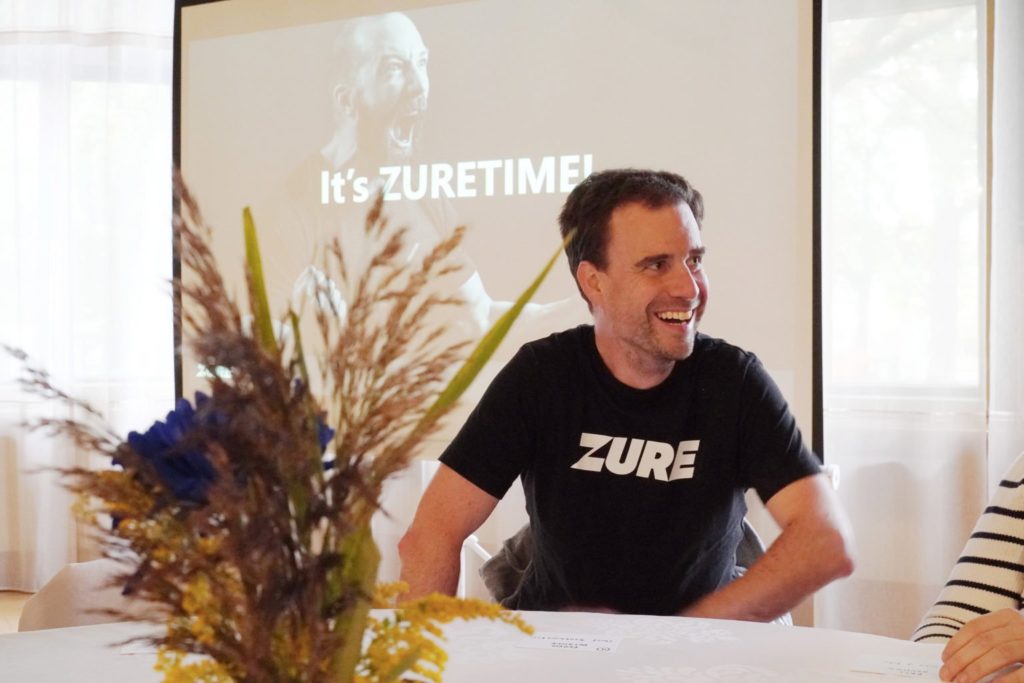
This week, a wild new feature sneaked into our backlog. You know, one of those ‘it would be really nice if this could be done this week, we want to demo it to a potential partner, kthxbye’ user stories.
The request was to build an API around data provided via a couple of CSV files containing location data and geographical hierarchies. Only some GET endpoints were required, the coolest one being “give me all locations in a range of x kilometers from this coordinate”. Hello, my geospatial friend!
Yes, we are building a custom data-sharing platform, but we are not building any APIs for consumption yet. So this was a totally new vertical slice and we also had to take performance, security, and CI/CD (incl. Infrastructure) into account.
So, I roared at this challenge, took my ThunderCats sword, summoned Glenn and we had a brainstorm on how to handle this. We agreed on a fit-for-purpose solution, rolled up our sleeves, and got our boots dirty. Glenn did the extracting, cleansing, and ingestion of the CSV data and I created the API with a CI/CD pipeline.
Today I am happy to say that we nailed it, the API is available for duty on our staging environment. Our customer is happy and hopefully, the potential partner will be happy as well next week.
Even though it has already been a few weeks, I’m still surfing on those amazing vibes we got from the CloudBrew conference.
As a partner, we decided to skip the ‘classic’ booth setup and started working on a common goal/product for our CloudBrew booth. After a couple of brainstorming sessions, Zpeedy, our IoT-powered racetrack, was born.
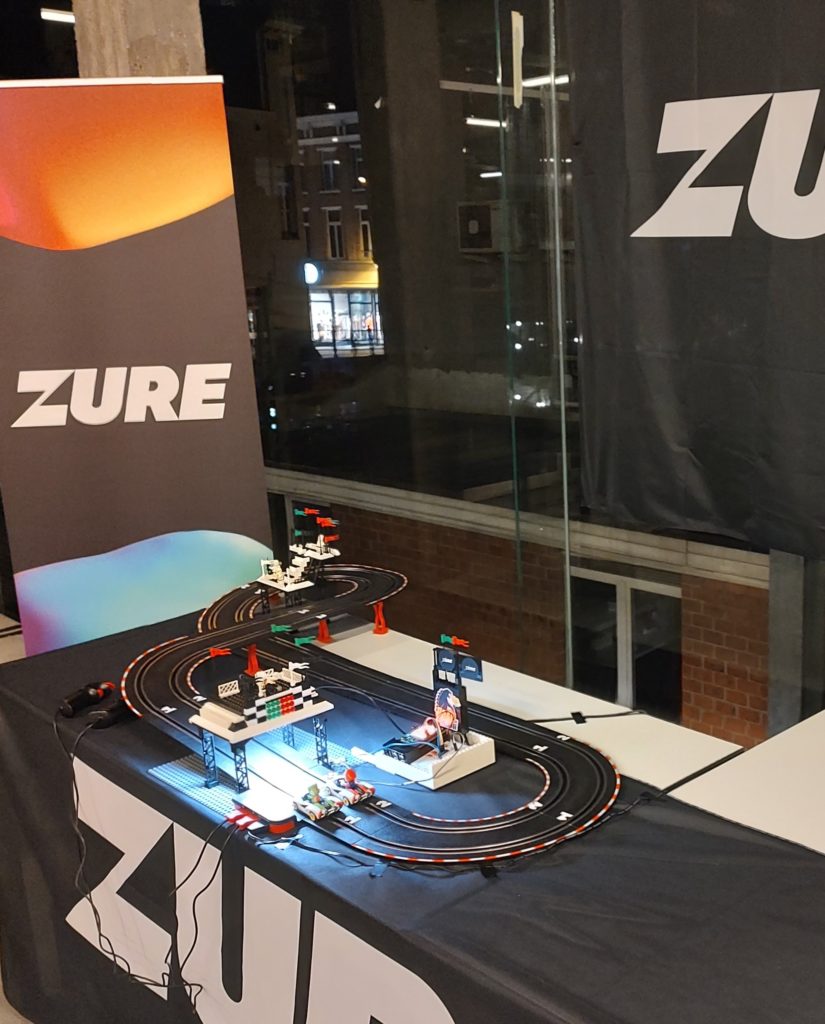
We analyzed, architected, and developed Zpeedy like it was a customer case, held a business and functional analysis workshop with ourselves as stakeholders, created an MVP, and even did a public test run at our office. It was hilarious knocking on the doors of our office neighbors we had never really met, showing them our flyer, and asking them to register and to swing by our office to test our racetrack. We got some interesting end-user feedback and did some rather big UI tweakings the week before CloudBrew.
At CloudBrew, everything went great. Pieter and Joonas had great presentations, and our booth and racetrack were a success! We also got some of our Finnish colleagues joining in and tasting our Belgian beers. It was an awesome experience!
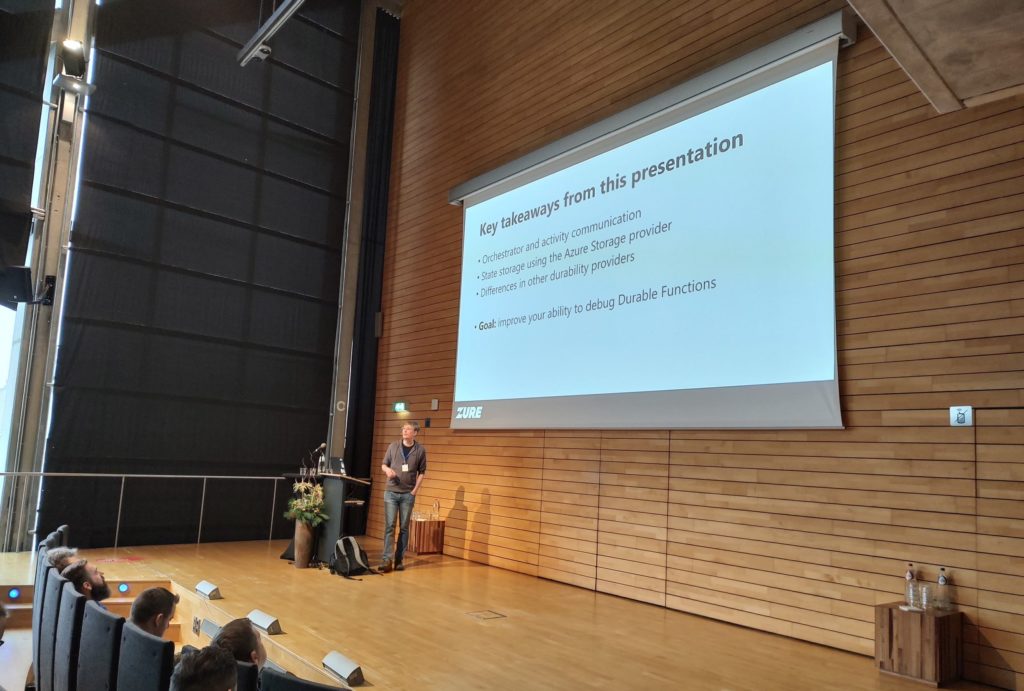
What attracts me to IT is the fact that technology is constantly evolving. Every day there is something new to learn and new challenges to face.
Evolving technology is cool, but it’s not what drives me. By the way, resume-driven or magpie-driven development is a pitfall, so watch out for that.
2 things give me a huge amount of energy and therefore I consider them as my motivation:
1) Being able to make a difference for our customers (and even their customers) by using the right technology to solve a given problem, optimize a business process, or provide an innovative improvement.
The cycle: feeling and understanding the pain of our customers, coming up with a theoretical solution, putting this solution into practice in an iterative way, gradually gaining more insights to refine the solution, and finally delivering something with high quality that makes our customers genuinely happy and that we are also proud of, that’s what it’s all about.
2) Going through this cycle as a team. I like to do things on my own, but working within a team of colleagues all having the ‘I have got your back’ mentality is priceless.
Outside of my job I get energy from my family, friends and listening to music. During COVID I discovered the music genre ‘melodic dubstep’ and I must say it really fuels me with energy. So shoutout to ILLENIUM, Dabin, Seven Lions, MitiS, and others!
I know I’m still having my honeymoon stage with Zure. This feeling just keeps on going! But I have to say, I cannot imagine my life without this team and company. I hope this statement ages well 😉
Why Zure? Looking at the time, I’ll give you a TL;DR: at Zure we all love technology. We are all experts and even as an expert you learn something new every day. God, I love our internal TIL channel, not a single day goes by without someone posting an interesting learning experience.
At Zure, we feed on challenges and we tackle them using a team-first approach.
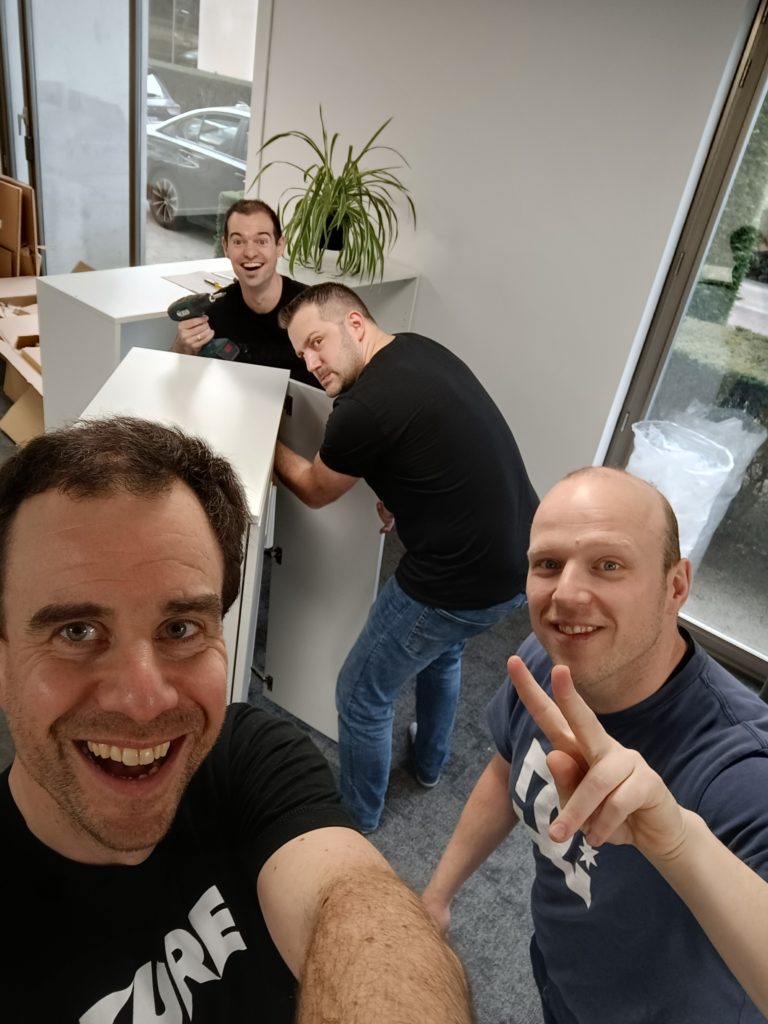
If someone asks me what’s it like to work at Zure, I usually compare it with driving your car on a road with a speed limit.
You are in full control of how fast your car can go, but the speed limits are out of your control. I think that every company has its speed limit in a way, think cumbersome organization, lengthy administrative procedures, not being able to talk directly to your n+2, not really agile, failing fast is not an option, …
If you compare yourself with a race car, being eager to learn, sharing knowledge, and evolving quickly, your speed is limited to 50 km/h if your company is a ’50 km/h’ company.
I have experienced firsthand that Zure is a German autobahn company, the maximum allowed speed is unlimited, it all comes down to how fast your car can go.
At Zure, you are behind the wheel, you decide which direction you want to go.
PS. Be sure to check out Glenn’s post about how 2022 turned out for Zure Belgium to get even more insights!
Our newsletters contain stuff our crew is interested in: the articles we read, Azure news, Zure job opportunities, and so forth.
Please let us know what kind of content you are most interested about. Thank you!